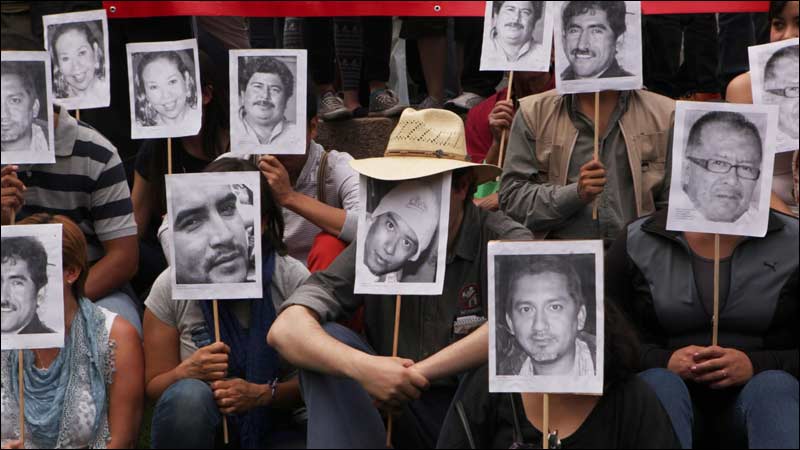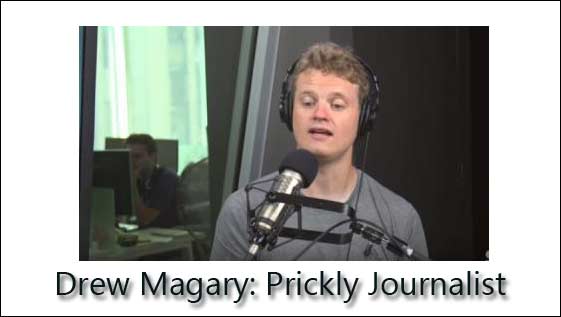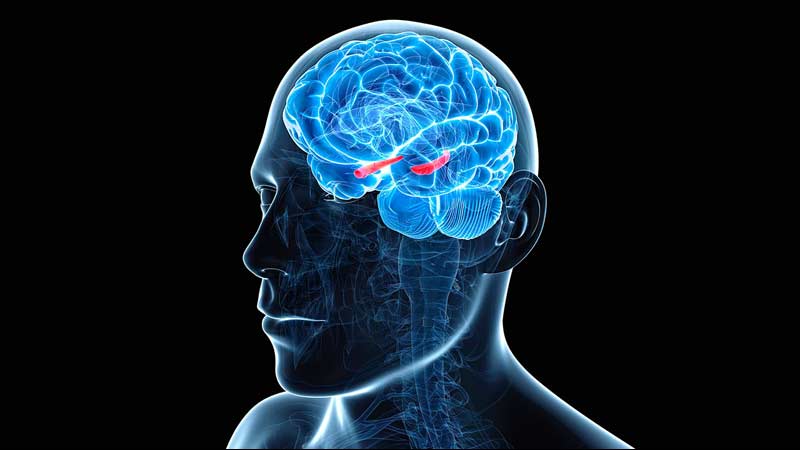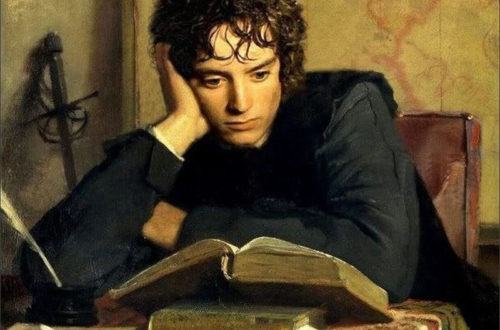Cognitive Dissonance: In psychology, cognitive dissonance is the mental stress or discomfort experienced by an individual who holds two or more contradictory beliefs, ideas, or values at the same time, or is confronted by new information that conflicts with existing beliefs, or values.
This afternoon I find myself suffering from cognitive dissonance.
I read yesterday in the New York Times an alarming article “How the Collapse of Local News is Causing a ‘National Crisis.’” I had two distinct and different reactions.
WHY I APPRECIATE JOURNALISTS
On the one hand, I am worried. Do I really want to live in a country where city councils, local police, and school boards operate unscrutinized by professional journalists? Where it is “open season” for corrupt officials to steal and engage in inappropriate/illegal behavior? No, I don’t. It is true that society benefits when an independent watchdog — journalists who aren’t paid by the government — has an ironclad 1st Amendment protections to report the news as it sees fit. One does not have to look far around the world to see governments (Syria, Russia, Saudi Arabia, Turkey, Iran) and powerful non-state actors (ISIS, Boko Haram, Taliban, Mexican drug cartels, Mara Salvatrucha, etc.) who will threaten to kill journalists who get in their way. A drug kingpin or local strongman or warlord who will order the murder of a journalist is almost as shocking, reprehensible, and dangerous to everyone as is the murder of a judge or a mayor. It is a blow not only against an individual, but against the fabric of society that individual represented. To kill a juror or a judge is to spit in the face of the law. To kill a journalist is to try and injure transparency, knowledge, and the search for truth.
I know the life of a journalist might not mean much in the badlands of Mexico, on a Syrian battlefield, in the Pakistani tribal areas, or in the Saudi embassy in Turkey. I know Mexican drug cartels have killed many local journalists. That is bad enough, but one cannot control much of that. But in the United States, we can better control it.
That is why it worries and angers me so much to hear President Trump label the media as the “enemy of the people.” It rings suspiciously similar to my history teacher’s ears to dictators in many foreign countries in many different eras who decried dissident movements and social critics in precisely the same terms. Would our Great Leader Donald Trump want to jail or otherwise use the power of the state to impede journalists from doing their work? If journalism really is a malevolent force harming the body politic, what exactly does President Trump propose to do about it? It is that all bluster, no action?
Trump is far from the first American politician to dislike the media. Politicians and journalists both need and loathe each other. I get it. Both sides find much which is understandably objectionable about the other. Government officials and journalists might not necessarily like each other, but they should appreciate the difficult job the other has to do. And they should understand their roles in the system and the rules it operates by. Both have important jobs to perform. This is not new.
Hopefully, Trump will contain his displeasure at American journalism to hostile tweets and popping off at his carnival-esque political rallies. American is not (yet) a banana republic where armed agents of the state or organized crime kingpins can bully journalists — or worse. If they try, let’s watch the lawyers and judges sweep into action fast and furious. The 1st Amendment is one of the glories of our Constitution, and I will fully support a judge smacking down any district attorney, federal agent, police officer, or deputy sheriff that lays a hand unlawfully on a journalist. Even worse (and more likely) — a gangland boss, corrupt businessman, or some other rogue individual threatening (or worse) a journalist on U.S. soil. Unacceptable.

American journalists complain that they are “at risk” in Donald Trump’s America. I am mostly not buying it. American journalists can look south of the border to get a reality check on what “at risk” means.
WHY I DISLIKE JOURNALISTS
On the other hand, I was happy to see journalists feeling economic pain. This is a trend which has been happening for decades — I wrote about it at length last year.
The article about the crisis in local journalism talked about how 71% of Americans have no idea how bad the economic crisis is in journalism. This does not surprise me in the least. I think the average American looks at a well-written, thoroughly-researched piece of journalism, and is impressed with the product. How many years of expensive education and hard work did it take to be able to produce such high- level intellectual work? The average reader would assume such a journalist most likely earns a generous salary. Most likely that reader would be mistaken. Highly trained and educated America journalists all over are barely able to hold on to their job and pay their rent. Not that journalism was ever a particularly high-paying job, but in the second half of the 20th century most journalists were solid members of the middle class.
All too often that is no longer true. Journalism has lost its business model, and many journalists are thrust into economic precarity. They have expensive educations and extensive student loans to pay back, and they are just struggling to keep their head above water. They are unable to make a living, or they struggle.
Take, for example, the Deadspin journalists who fired/quit en masse earlier this month. They loudly objected that they were ordered by the owners of the company to refrain from bringing up politics in their sports reporting unless it was endemic to the story — as if this was their right? Entitled, opinionated, sanctimonious, whiny, over-educated and under-marketable — these New York-media types I find easy to dislike, and when they lose their jobs a part of me cheers.
Take, for example, this article on resurgent socialism in Brooklyn, NY. These are the social circles in media of creative types which American journalists often come from. As the article dedicated states, “They are cash poor, but they are culturally potent.” Translated that means they have little economic clout but lots of power to set the parameters of what America debates and thinks. Or at least they think they do. Billionaire entrepreneurs like Jeff Bezos (Washington Post owner) and Patrick Soon-Shiong (LA Times owner) might make owning newspapers a hobby out of philanthropic generosity, and journalists hardly have a pot to piss in. But journalists would like to think they are the spearhead for positive social change in America, regardless of what actual Americans think on the issues. “Cash poor but culturally potent.” So if you never will have money, you might as well maximize your capacity as a liberal “change agent.” It becomes the raison d’être.
Let me be careful how I say this: I have met many journalists who are decent people who, while they have their own political opinions, are open-minded and pursue their jobs wherever that might take them. They are imbued with good common sense. They are grounded in reality. Many of them are agnostic about politics, more or less. They are certainly not ideologues.
But then there is a certain sort of liberal who goes into journalism the same way another might go into the clerisy or social work — as a form of single-minded service working for “social justice,” as they see and define it — to “comfort the afflicted and afflict the comfortable.” Everything they report travels through this liberal ideological prism and slants their work. They are uninterested in the disinterested pursuit of truth, wherever that might take them. They pursue, to one degree or another, their own personal political agendas of what society should be through their reportage.
Supposedly, there is a clear line between straight news reporting and the opinion/editorial section. But devotees of “advocacy journalism” are blurring that line more and more, and the public’s trust in journalism correspondingly drops. Trump eggs this on when he calls American journalism “fake news.” He has a point, too, but the news is more “slanted” than “fake.”
Most journalists will charitably admit that the personal politics of the writers in their newsrooms slants to the liberal side. That understates things considerably. I have personally met many hardcore “bleeding heart” liberals who are almost constitutionally unable to keep their bias out of their work. Over time when one reads them one begins almost automatically to adjust to their liberal bias. The problem is not that these journalists don’t understand the difference between an editorial and a news article; they do know the difference. The problem is who these journalists are: their personal politics and desire to “make a difference.”
You will find this partisan-hackery in conservative Fox News. I would not believe Fox News if they announced in a headline that water was wet. They are the very apogee of partisan news. That is on the conservative side. But the liberal bias in the New York Times, NPR, Public NewsHour is more subtle but also more insidious — and thereby more effective. For decades conservatives have decried the liberal newsroom full of liberal journalists, and they have cause.
So when I read journalists with expensive college degrees bemoan that they were fired, I don’t feel much sympathy. The business model of journalism is broken, but many of these journalists seem to think by reason of their expensive and lengthy educations the importance of their positions as “truth seekers/sayers,” that they deserve a job. And a well paid one, at that.
Balderdash. They deserve nothing, unless they can find a way to justify their paycheck, like everyone else. Society does not owe them a job. Many journalists seem to think their vocation is so obviously important that everyone should pay them — well, just because. I have seen some journalists argue that the average American should choose to tax herself to pay for journalism in the name of the public good (and insure journalists always have jobs). It is like journalists are so self-important that they are entitled to a job, and it should not matter if Americans don’t actually want to pay taxes to support journalism. And then watch them on Twitter or wherever — re-Tweeting each other’s job searches, or complaints about their unjust firings. Journalists re-Tweeting each other: a neurotic, unhappy hive mind turning in on itself. What a bunch of whiny, self-important, opinionated, sanctimonious little shit stirrers! No wonder journalism scores as poorly as does Congress in public opinion polls.
So when I hear yet another bout of media resignations/layoffs at Deadspin or wherever, a part of me is sad for the newly unemployed and part of me cheers. The Deadpsin journalists fired complained that their bosses retaliated against them. They were fired for not sticking to sports reportage, on principal; they claimed they needed (their professional honor required them) to bring political reportage into their sports coverage. Did it ever occur to them that maybe most who follow sports don’t want politics brought into it, unless the political angle is indelibly part of the story? That maybe they should not have their job, unless they can find a way to make it pay? That they are not entitled to their job? That because they are journalists they are not any more special than anyone else? Is there a market for sports commentary dripping with political anger? If so, the currently unemployed Deadspin journalists will land on their feet. Otherwise, not so much.
So when someone like Maya Kosoff (Journalism BA Syracuse University 2014) loses her job and retreats to a weekend party in Brooklyn full of other creative liberal types — to commiserate about freelancing and job prospects, and to talk of the attractive prospects of Elizabeth Warren or Bernie Sanders candidacy for president; or to shoot the breeze about intersectional feminism, or whatever other trend is cool among their New York-media peer group — I am not sad they lost their job. Get ready for them to re-Tweet everyone’s job searches and/or political poses ad nauseam.
The best example I have seen is Drew Magary. He was one of those journalists from Deadspin, and the subsequent author of this gem —
“I Am the Intolerant Left”
By Drew Magary
A part of me applauds when someone as contentious as Magary is forced to resign or gets fired. I enjoy the fact Magary is currently writing for (almost) free on Medium or Vice rather than getting paid regularly by Deadspin or GQ. He will most likely get another full-time media job, and then get laid off or fired from that one in a few years; and thereby Magary and journalists like him will limp into the future hampered by job insecurity and economic precarity. So it has been in American journalism for going on two decades now. As long as the economics stay the same, the future of journalism will resemble the present.
In similar fashion, I read recently how many smaller American colleges are struggling financially, or even going out of business. Universities in the United States are the very center of “progressive America” with its microaggressions, trans-activism, brittle intolerance — the liberal hyper-obsessive focus on “race, gender, and sexual preference” of the American left. I am glad to hear places like that going out of business and look forward to more such college bankruptcies. Same with media enterprises like Deadspin. If some tendentious super-conservative media organization — like the Sinclair Broadcast Group — were to experience financial disaster, my reaction would be the same: “Glad to hear of it!” Shit stirrers.
So I am conflicted. I appreciate American journalism, but I dislike American journalists. I am concerned when American journalism is in crisis, but I enjoy watching American journalism struggle to find the footing it needs to do its work. I want the best for them, and I don’t. Cognitive dissonance.
F. Scott Fitzgerald once wrote, “The test of a first-rate intelligence is the ability to hold two opposed ideas in mind at the same time and still retain the ability to function.” That is one way of looking at it.
Another is to admit that in so many ways and in so many areas, we are beset by ambivalence in our feelings towards others. Do we love our spouse, employer, or our country — or do we hate them? Both? Often at exactly the same time? In varying degrees depending on the day? Cognitive dissonance.
Do I esteem my own profession? Public education? In my capacity as a high school teacher? Yes. But unlike most others I know acutely its failings and loath it, too — “oh, brothers, we are the sickest and lowest of the breed.” Anyone holding up public education as the best last hope of America most likely does not work in it. It is probably no different in the law, medicine, real estate, journalism, or any of the other professions.
But, esteemed reader, I posit that this complicated state of affairs is the normal, not the abnormal — the ambivalence and conflicted feelings, the mixing of love and hate — in the unquiet and ever-changing cross currents of our inner emotional lives — as Yeats says deep deep down “IN THE FOUL RAG AND BONE SHOP OF THE HEART.”

P.S. In researching for this essay I came across Drew Magary’s book, Someone Could Get Hurt: A Memoir of Twenty-First-Century Parenthood. A parent myself, I was interested. So I bought the Kindle version for $9.99. I enjoyed it! My wife read it, too. She laughed out loud during the chapters “Faka” and “Nits.” So I guess I did my civic duty to throw a few shekels to American journalism and Drew Magary.






One Comment
Joe Bostitch
Interestingly there is a debate over the role of “activist journalists”. The film “The Promise” (2016) includes an Associated Press journalist who makes it his mission to expose the Armenian Genocide, and was based on real life journalists in the period who did so. I can see that reporting needs to be sober and state the facts without unnecessary spin, but also see the point that journalists are there to keep the state and society in check, as the fourth estate. A saying in American journalism is that anything that does not make someone unhappy is not journalism, but just PR.
I personally am OK with activist journalists, so long as they make their own biases/worldviews explicit (and nobody is free of bias), but the idea of journalism being entertainment (which affects across all political spectrums) needs to go: it is a sober subject. I know someone will argue that nobody will pay attention if it’s not fun, but I think one should instead condition people from early childhood to accept sober news.